The UK is the ninth largest manufacturing nation in the world, with the total value of UK manufacturers’ product sales totalling £396.6 billion in 2019. Manufacturing equates to 11% of the UK’s GVA and employs 2.7 million people.
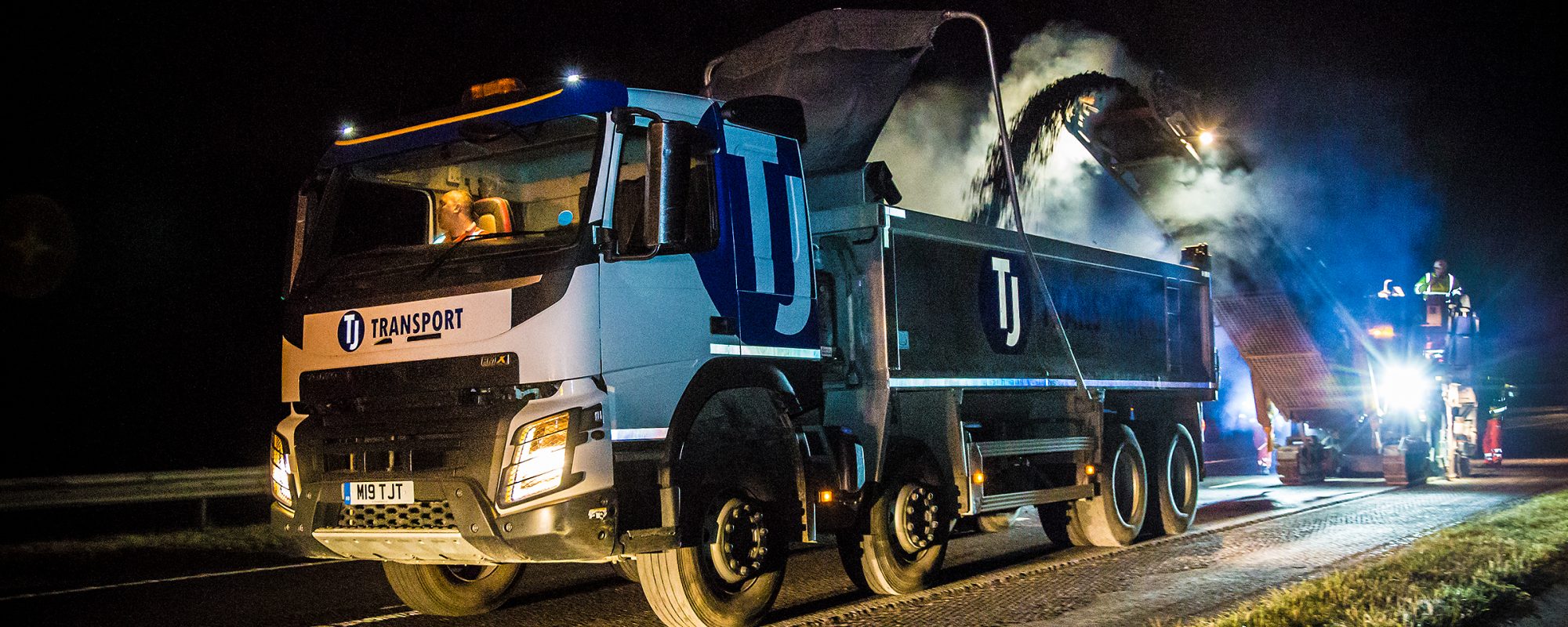
Roads have played a major role in the development of the British economy, especially over the last 60 years or so. The last century has seen transport come on in leaps and bounds. The birth of the motor car took place in 1886 with the first car available to the masses – the Model T produced by Ford – coming to the market in 1908.
Roads are so important because they provide us with the means to travel around freely. They are also integral to the growth of the economy as all industries rely on roads to transport goods from one place to another, whether that’s raw materials or finished goods or both.
On a personal level, we are now able to get from one place to another so much faster. We think nothing of accepting a job 50 miles away because with our advanced roads, that daily commute is reasonable. More and more families live in different parts of the country, but with the motorways of today, it’s not a big deal to jump in the car and visit at the weekend.
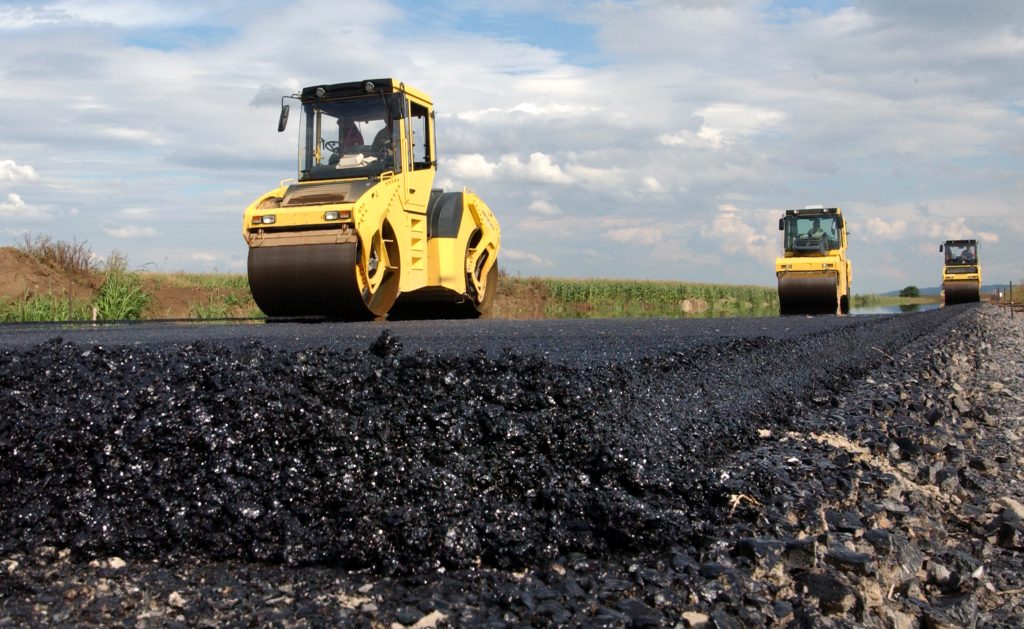
Roads are made up of several layers to ensure they are long-lasting and strong enough to be used by a large volume of vehicles, some of which may be very heavy.
To build a new road, the ground has to be prepared, which involves removing the topsoil along with any vegetation, before scraping and grading the area to the finished formation level. This is usually done using a tractor shovel, grader or bulldozer. Below the formation level, the soil is known as the subgrade. This subgrade must be tested to ensure it is a certain strength before work can commence.
Next is the capping layer, which provides structural support and improves drainage. This layer is usually made up of crushed concrete or rock chalk and is typically 100-300mm deep.
On top of that is the subbase, which improves load distribution and drainage. The aggregate used for this layer would be crushed rock that is less than 50mm in size, such as crushed concrete or crushed rock. The material is known as Type 1 and should be non-frost susceptible. The usual depth of this layer is 100-300mm.
The surface layer is usually made of concrete or asphalt. Concrete is the strongest option but not as comfortable to drive on as asphalt. Porous asphalt is especially suitable as it is an open-graded material that is designed to allow rapid drainage of surface water, thereby reducing spray as well as tyre noise. This is laid to a depth of between 25 and 50mm.
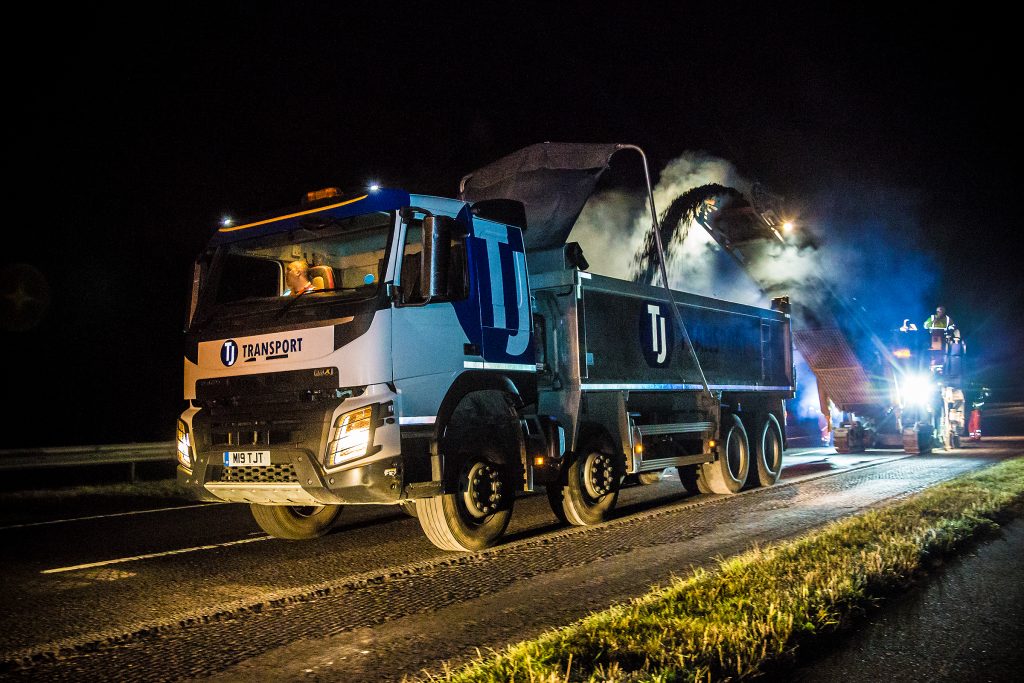
TJ offers several services to assist with the construction, maintenance and improvements of the road networks across the south coast and in the Bristol area.
TJ Transport won a contract to provide materials and services for Highways England on their £218m Smart Motorway upgrade of the M27 between junction 4 (M3 interchange) and junction 11 (Fareham). The project will see the hard shoulder being turned into a permanent running lane over 15 miles, so the road becomes a four-lane smart motorway in both directions.
TJ’s role is to supply industry-standard sub base and capping materials, and undertake onsite lorry work and muck away. TJ’s lorries are working every night throughout the project to move materials from the central hub at J11 to wherever they’re needed. They move hard materials from the current work site, recycle them and return them to the site for reuse. TJ then take any unwanted materials away to local facilities for disposal.
Some of the fill materials that TJ are supplying are coming from their two quarries in Hampshire and are being utilised by the two contractors Morgan Sindall and BAM Nuttall.
TJ also won a contract to transport more than 350,000 tonnes of aggregates to the site of the M49 Avonmouth junction near Bristol. TJ’s haulage services will be used for at least the next six months, with 15-20 trucks on hire every day.
TJ was awarded the contract by civil engineering company MJ Church, on behalf of contractors Galliford Try Plc and Highways England. TJ has worked with MJ Church in the past and put in a bid for the haulage work that they knew would be required for this type and scale of project.
One of the reasons TJ were selected to undertake the haulage for the project was because they offer a one-call service to get 15-20 trucks, rather than the client having to use several smaller companies to achieve the same outcome.
Find out more about the range of services TJ offers.
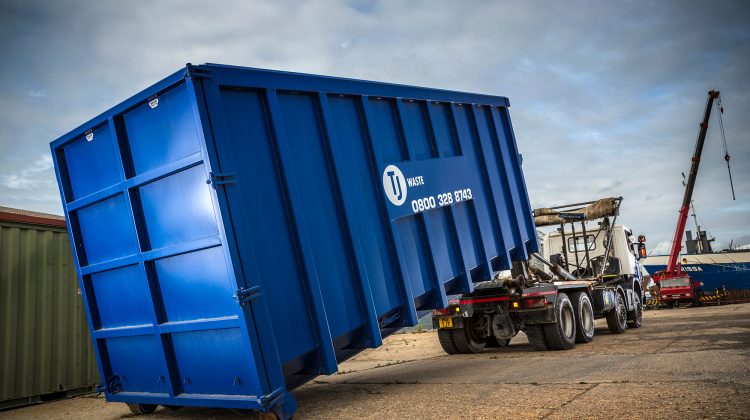
The UK is the ninth largest manufacturing nation in the world, with the total value of UK manufacturers’ product sales totalling £396.6 billion in 2019. Manufacturing equates to 11% of the UK’s GVA and employs 2.7 million people.
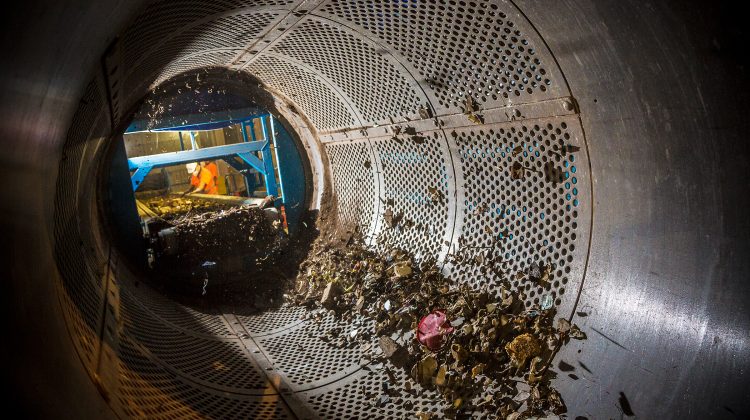
With the UK’s population continuing to grow, the waste industry is under increasing pressure, and the need for innovative, sustainable solutions has never been greater. From staggering statistics to surprising insights, check out our 10 shocking waste facts that might just change the way you think about rubbish.

Barney joined TJ Waste in February as an Operations Administrator and is enjoying learning all about the waste industry. Outside of work Barney is an avid football fan and plays five-a-side once a week. He also enjoys live music, Formula 1 and MotoGP.
Change your stored postcode to update prices for your location.
Notifications